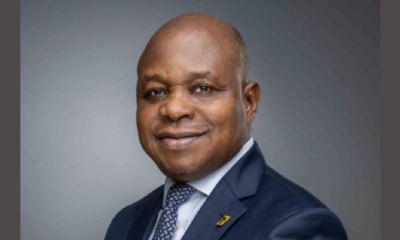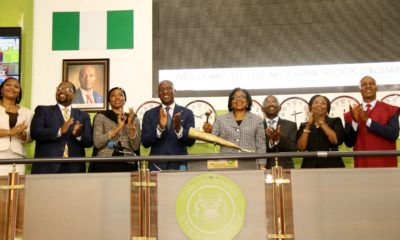In time past, monthly income earners – especially bank customers – were unable to have quick access to personal loans to meet their immediate financial needs due to the stringent conditions.
The Central Bank of Nigeria (CBN) had introduced the Know-Your-Customer (KYC), among other policies, to enhance financial inclusion and reduce the incidence of related identity fraud in the banking sector. These have enhanced the capabilities of banks to grant soft loans to customers.
With these, monthly income earners have access to loans every month with an attractive interest rate, below the stipulated limit, which has eased customers with the opportunity to access soft loans (Personal loans) and meet urgent needs.
Amid double-digit inflation rate, among other operating headwinds, meeting demands of owning a dream car, house, and travel for vacation become challenges as daily expenses inflate.
Personal loans are borrowed money that can be used for large purchases, debt consolidation, emergency expenses, and much more.
These loans are paid back within the period advised in the terms and conditions of the facility. The payback period can be within a month, a couple of months or a few years.
Salary accounts can do more than just receive monthly pay; they have inherent wealth that can be unlocked to help customers achieve dreams as they advance in their careers and be on top of ‘money demanding’ situations at home and work.
Over the years, First Bank of Nigeria Limited has adopted the strategy of creating opportunities for salary accounts holders to unlock the wealth in their accounts with numerous initiatives introduced to bridge the gap in the access of quick loans.
The bank’s salary accounts offer zero opening balance, zero minimum daily operating balance, zero account maintenance charge, First Free Verve or Master Card Issuance and access to consumer loans.
The bank also introduced Personal Loan Against Salary (PLAS), First Advance, and FirstCredit Salary Account designed to meet personal loans demands.
With FirstBank’s PLAS, the salary account holder can access personal loans up to N30 million to pursue capital projects, carry out renovation works on their properties, acquire assets, give their children the best education, and other fulfilling accomplishments. PLAS offers flexible options to top-up and refinance existing loans at competitive rates.
The product is designed to also help customers meet immediate personal financial obligations such as rent renewals, vacation trips to choice destinations and pay for professional examinations to take their career to the next level. With PLAS, Nigerian salary earners need to be assured of a funding partner in FirstBank to fulfil their dreams. PLAS is available to employees whose salary accounts are domiciled with FirstBank.
FirstAdvance is a digital lending solution designed to offer convenient and easy access to cash for payroll customers awaiting payment of their salaries.
The product is meant for salary earners whose accounts are domiciled with FirstBank and have received regular salaries in the last six months or more.
The maximum amount accessible is N500,000.00, subject to 50 percent of the net average three months salary, whichever is lower.
The eligible amount is calculated after deducting all other loan obligations to the Bank. This product can be accessed via the Bank’s leading digital channels: FirstMobile and USSD.
The features of FirstAdvance include: Salary account must be domiciled with FirstBank, loan amount of up to 50 per cent of net monthly income, the tenor is 30 days or next payday [whichever comes first]. Repayment is taken immediately salary is received, while a lien is placed on the unfunded account, among others
The bank also has FirstCredit, a product designed to provide customers with a quick and simple loan to fund their immediate needs.
FirstCredit loans can be accessed from anywhere without visiting the Bank. It involved no documentation or collateral required and all the customer need is a mobile phone or tablet.
FirstCredit is easy and convenient as it promotes immediate access to loans to meet needs. It facilitates quick loan requests and disbursal with no physical documentation required nor collateral required. Neither are there hidden charges nor fees.
Its features include: the customer’s account must have been operational in FirstBank for at least six months; linkage of the account to a valid BVN is a requirement; primarily details of the account, including phone number and residential address, must be correctly updated and the customer must have a positive credit history and score with Credit Bureaus. The maximum loan amount is N300,000
Others are loan tenor: of 30 days, an interest rate of 10 per cent flat and insurance fee is also taken upfront on loan disbursal. To apply for FirstCredit, customers are to Dial *894#, select Loans, and follow the instructions.


 Naira3 weeks ago
Naira3 weeks ago
 News4 weeks ago
News4 weeks ago
 Naira4 weeks ago
Naira4 weeks ago
 Travel3 weeks ago
Travel3 weeks ago
 Naira3 weeks ago
Naira3 weeks ago
 Jobs3 weeks ago
Jobs3 weeks ago
 Naira3 weeks ago
Naira3 weeks ago
 Investment4 weeks ago
Investment4 weeks ago



























